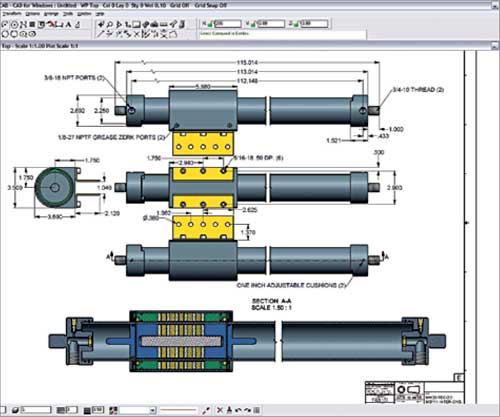Right from the smartphone in your hand to the electric kettle in your kitchen, every single gadget that you use is a perfect combination of technological innovation and aesthetics. Designers of smartphones, tablets and other electronics products are expected to combine these two attributes in their products.
Product design and computer-aided design (CAD) engineering is a field that not only requires great technological know-how but also understanding of the market demands and aesthetic sense to develop something extraordinary. This surely is a difficult combination for one person to acquire. But if you can do that, product design and CAD is the domain for you.
Commenting on the growth of product design and CAD in the country, Rajiv Kapur, managing director, Broadcom India, says, “The design and manufacturing level in India is very low, especially if you compare it with consumption level of electronics. There are two kinds of business models around product design activity: One is the outsourcing business model where some companies in India design for their clients within or outside the country, while the other model is designing in India for the domestic market. There are some good companies like Wipro working in the outsourcing space, which design products based on their clients’ requirements. Product design at chip level is happening on a significant level in companies like ours. About 12 per cent of our global headcount is in India, which is the largest we have outside the US. If you talk about the quality of work, the first 28-nanometre chip was made out of India. This gives a clear idea of what kind of design is happening in the Indian geography.”
Milind Shah, founder and chief executive officer, WishTel, adds, “With the emerging smartphone, tablet and laptop market, the scope of product design engineers increases manifold. The Indian government is supporting indigenous manufacturing, which is working in favour of the industry as well as aspirants looking to make a career in this segment.”
Though the current global economic pressures are likely to hit the electronics market, some companies still have a positive outlook.
[stextbox id=”info”]The Indian government is supporting indigenous manufacturing, which is working in favour of the industry as well as aspirants looking to make a career in this segment[/stextbox]
Sunil Pathak, director, human resources, Cadence Design Systems (I), informs, “The semiconductor industry grew at a rate of around 20 per cent last year. Even in the current scenario, I assume that the semiconductor industry would grow at about 10-15 per cent, which is also a considerable rate of growth. With the growth in semiconductor and VLSI industries in India, demand for product design and CAD engineers is definitely growing.”
You can work anywhere and everywhere
There is scope for product design engineers in almost every industry, asserts Prof. G.G. Ray, head of Industrial Design Centre, IIT Bombay. Prof. Ray, however, feels that it is incorrect to call product designers as product design engineers. “I agree that this is an advanced branch of engineering but it is more than just engineering. It is a creative process. So engineers who lack creativity and out-of-the-box thinking are not suited for this profession,” he explains.

CAD for product design (Courtesy: www.cadinternational.com)
Creativity is definitely important to get into this profession. Industrial Design Centre at IIT Bombay, India’s premier institute teaching product design, has a selection criteria where candidates’ creativity, and artistic and aesthetics sense are also judged at the time of admission.
Prof. Ray cites an example from automotive sector: “For automobile design, companies look for candidates who can visualise what a car should look like in the future. The visualisation part is not where much of engineering is required. One has to be artistic and a great visualiser. He should know how cars looked like in the past and what is the form of vehicles today. Considering the changes observed, he should be able to visualise what cars should look like in the future. Having an engineer’s mind is an added advantage because it helps in visualising objects, which can be converted into reality.”
[stextbox id=”info” caption=”Some companies where you can fit into”]1. Consumer electronics companies like Samsung, LG, Whirlpool, Voltas and Godrej
2. Semiconductor companies like STMicroelectronics, Infineon, NXP Semiconductors and Qualcomm
3. Electronics system companies (which do system design and PCB design) like Freescale, STMicroelectronics and NXP Semiconductors
4. Telecom companies like Huawei, ZTE, Samsung and LG[/stextbox]
So if you have a knack for foreseeing the future, you are bound to succeed in this field.
There is immense growth too
In product design, sky is the limit for you. Nitin Jain, head-marketing, presales & solutions, highlights the growth path for an engineer willing to make career in product design: “A product design engineer can grow as much as he wants. There is always an adequate demand for such professionals and, being in the niche segment, companies are always keen to hire people with exceptional talent. A fresher in this domain can grow to the highest level in the company.”






